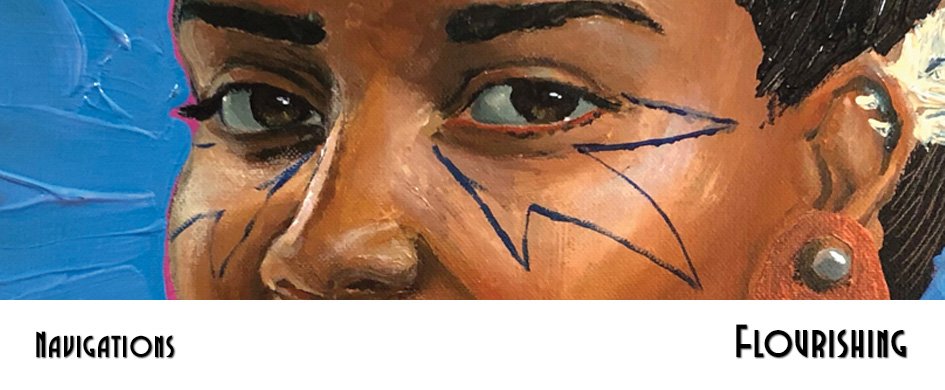under him, worn blue cotton spread over the dirt,
a childhood towel that once kept him dry and warm.
Now, home-bound by the pandemic, he trims native buckwheat
planted one previous spring, finally grown into its own.
I have something mundane to ask—maybe whether he’d like
a cup of coffee (I’ve made a fresh pot). Or maybe
I want to ask how he grew so close to the soil
from parents who spent every day with open books
and pens in their hands. I crouch beside him at the edge
of the towel, watching (his firm grip on the clippers,
gentle grasp on the stems) when a heavy-flying June beetle
buzzes between us. We watch it circle in to land nearby.
“This time of year, they’re laying eggs,” my son says.
Sure enough, the beetle leans in head first and begins to dig.
Her front legs burrow steadily as we talk, my son laying out plans
for new planting this fall—natives that will fill out in years,
beets and carrots and chard we’ll be eating in months.
Every so often we turn to check. The beetle steadfastly mines
into the soft earth to make a birthplace for her children,
her head disappearing into the ground, leaving less and less
of her. Deeper and deeper she sinks until she’s gone completely.
If she does her job well, eggs will hatch in the warm underground,
and next spring, her children will poke out into the world, flying
among flourishing buckwheat and sweet peppers my son has planted.


